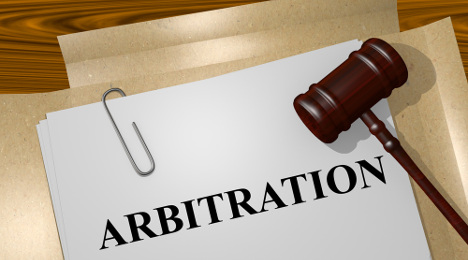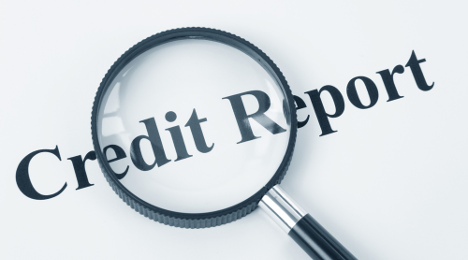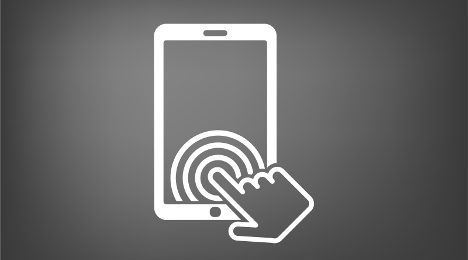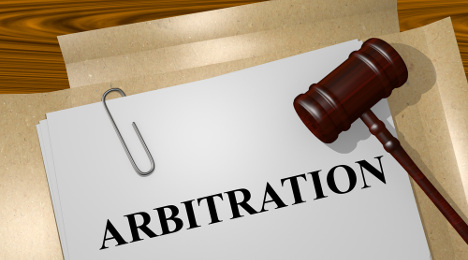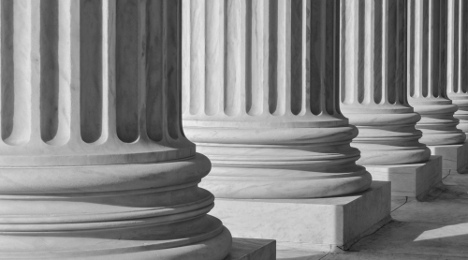Potential problems with vehicle documentation and state tax collection could cost a Kentucky dealership more than $1.1 million in restitution.
Kentucky attorney general Andy Beshear filed a lawsuit on Wednesday in Fayette Circuit Court against The United Group, which operates as Auto Plaza USA, a large independent dealership in Nicholasville. The lawsuit is charging the dealership with deceptive business practices.
According to the lawsuit, the defendant, with the dealership located at 2000 Vince Rd., in Nicholasville, violated Kentucky’s Consumer Protection Act by defrauding more than 1,400 customers.
“Every Kentuckian deserves an honest and fair car buying experience,” Beshear said. “Today’s action sends a strong message that my office will defend Kentucky families against bad actors and hold dishonest businesses accountable.”
According to the lawsuit, between 2012 and 2016, the defendant collected vehicle usage taxes from customers and then falsified documents in order to avoid making the correct payment to the Kentucky Department of Revenue. As a result, customers received delinquent tax notices from the department and left owing a tax bill that, in many cases, they already paid to the defendant.
The lawsuit also alleges the defendant charged each customer a $489 fee for preparation of documents and services that were not properly performed.
Beshear’s office is seeking damages from the defendant, including approximately $465,000 in restitution for the customers who incurred additional unpaid usage tax liabilities, and $685,000 for customers affected by the bogus customer fee.
The office of the attorney general launched an investigation into the company’s practices and filed suit following more than 100 consumer complaints received by both the attorney general’s office and the Better Business Bureau (BBB).
“When calls and complaints started coming into our BBB a few months ago from Auto Plaza USA customers alleging the same unpaid tax problem, we believed there was a serious issue,” said Kim Sweazy, director of operations for the BBB serving central and eastern Kentucky.
“We made the attorney general’s office aware of our concerns, and they worked swiftly toward today’s action,” Sweazy continued. “We applaud the attorney general’s commitment to the citizens of Kentucky and value our partnership with his office in protecting the consumers of this great commonwealth.”
The Consumer Financial Protection Bureau’s new arbitration rule has gotten a lot of coverage lately and deservedly so.
If and when it goes into effect, it will ban class action waivers and bring about some other notable changes. The big impact of this will be that just about every arbitration clause or agreement in use today would need to be re-written, because they currently contain provisions by which a consumer waives the ability to bring or join a class action lawsuit.
Another significant change would be that those lenders or creditors using arbitration would have to file a report with the CFPB on the type of case, claims involved, time, cost, and just about any other piece of information. It sure seems like the CFPB is seeking to gather this information to suit its own purposes.
Challenges to the rule
However, all is not lost. Both houses of Congress are considering bills to strike this new rule under the Congressional Review Act. This means that by a simple majority of each house of Congress, the rule may be terminated and never go into effect. Also, it is rumored that CFPB director Richard Cordray will announce he is running for governor of Ohio, which will necessitate his resignation or removal. Should this occur, a new director will be appointed by President Trump and may retract the rule.
Finally, many industry participants are certain to file judicial actions seeking to have the rule stricken. The bottom line is that as things stand today nothing is certain.
What it means for you
So what does all of this mean to you, the independent or buy-here, pay-here dealer? First, there is great uncertainty whether the rule will take effect. If it does take effect, the industry would have until March 19 to comply with the new law and stop using class action waivers and obey the other parts of the new rule.
What should you do now
First, keep an eye on additional emails like this to keep current on new developments. Secondly, start thinking about whether you want to keep using arbitration agreements if the rule were to go into effect.
Even without protection from class action lawsuits, there are many benefits to using arbitration. Typically, arbitration cases are heard much faster than civil court cases, so the seemingly endless attorney's fees can be avoided.
Plus, it is likely that a decision will be received sooner, which avoids the uncertainty of litigation. One must consider whether the new reporting requirements outweigh these benefits, though.
Conclusion
The news is grim but the game isn't over. Don’t jump to conclusions. Instead, take a thoughtful approach, stay informed, and please contact me if you'd like to discuss your particular practices and formulate a game plan. Every business is different and we can help you decide what's best in your situation.
Steve Levine is chief legal and compliance officer of Ignite Consulting Partners, which offers compliance, technology, process improvement and cyber security guidance to car dealers and finance companies. The combined experience of the Ignite team allows them to develop strategy, overcome internal obstacles and implement meaningful change. Contact [email protected] to learn more. You can follow Steve on Twitter @LawyerLevine for compliance and industry-related content.
The industry just moved past Fourth of July, but the National Alliance of Buy-Here, Pay-Here Dealers (NABD) is already looking toward late October when the organization hosts its next BHPH Conference.
The 14th annual conference — which has the theme Opportunity Knocks – Best Ways to Respond — is set to begin on Oct. 23 at the Rosen Centre in Orlando, Fla.
NABD president and founder Ken Shilson said, “The last 24 months have been extremely challenging for BHPH operators, but better days are ahead.”
Shilson acknowledged that increased competition, plus higher operating and compliance costs, have combined to reduce profits and BHPH market share. However, he added that competition is declining and former BHPH customers will re-enter the finance market when they default on vehicles they bought from the competition.
This conference will address ways to regain market share, find capital, avoid compliance mistakes and reconnect with the best customers, as well as underwriting and collection best practices that work in the current environment.
The program begins on Oct. 23 with a first-timer reception at 1 p.m. and ends at noon on Oct. 25 to facilitate return travel. Featured speakers are set include:
—Richard Flint
—Steve Siebold
—DJ Harrington
—Ingram Walters
Shilson mentioned that more experts who will provide important tips and insights to help attendees succeed are being added to the conference program.
“Their messages will benefit attendees long after the conference ends,” said Shilson, who noted that NABD will post an agenda online at www.bhphinfo.com. More details also are available by calling (832) 767-4759.
The conference will feature an exhibit hall to facilitate networking between experts and attendees. Anyone interested in exhibiting should call (832) 767-4759, as exhibit sales are currently under way and exhibitor space is limited.
Rosen Centre is conveniently located just minutes from Orlando’s airport and was recently voted one of the 75 best meeting hotels in America. Recently renovated, it offers the ideal facilities for this conference.
NABD has negotiated discounted room rates of $179 per night, with no resort fees, to make it affordable for everyone. Conference registration discounts are also available for attendees who make their room reservations and register for the conference before Sept. 22.
Visit www.bhphinfo.com or call (832) 767-4759 to register or for more information.
Ignite Consulting Partners is hosting a free webinar focused on one of the most complicated services buy-here, pay-here dealers sometimes offer their customers — reporting of payment activity to one of the credit bureaus.
Richard Hudson, chief optimization officer at Ignite Consulting Partners, is scheduled to conduct a one-hour discussion focused on some of the best practices BHPH dealers can use to ensure they are reporting information correctly. The free webinar is set for 2 p.m. ET on July 18.
“Furnishing consumers’ information to the bureaus is a process fraught with risk for those who are not prepared,” Ignite Consulting Partners said.
“During this free webinar, we will discuss concrete steps you can take to help mitigate risk, protect your business and, most importantly, ensure that you are taking care of your customers,” the firm added.
Hudson will drill down into three topics, including:
—Reporting accurate information
—Properly responding to disputes
—Getting the process right for your business
Hudson is the former director of iDMS and inventory support at DealerSocket, as well as the former manager of tech support at AutoStar Solutions. He has eight years of experience of working with some of the biggest names in the automotive industry and has expertise in credit reporting compliance and processes, collections processes and management, retail installment contract servicing and team management.
Dealers can register for the webinar here.
The industry put up a valiant effort to prevent it from happening, but a new law in Nevada goes into effect on Saturday that greatly impacts how buy-here, pay-here dealerships and other auto finance companies that dive deep into the subprime pool can use GPS and starter interrupt devices.
Along with not being able to activate the starter interrupt until the contract holder is more than 30 days past due, there are several other modifications to how dealers and finance companies can use these devices in Nevada thanks to the passage of SB 350, including:
• Get written consumer disclosure for using starter-interrupt devices.
• Give at least 48-hour actual notice of disablement.
• Provide two 24-hour overrides in event of emergency.
• Cannot charge for installation or use of starter-interrupt technology.
• Restrictions on device data collection and length of data retention.
• Requires certified device installers.
PassTime, Spireon, the National Independent Automobile Dealers Association and J.D. Byrider were among the organizations that pushed back against this legislation for nearly four years as the Legal Aid Center of Southern Nevada championed an effort that won the favor of both of Nevada’s lawmaking chambers as well as Gov. Brian Sandoval.
Depending on how the contract is structured, delinquencies and eventual defaults could spike in Nevada, which already ranked in the Top 10 nationally for 60-day delinquency. The latest data from Experian Automotive put Nevada’s 60-day delinquency rate at 0.73 percent in the first quarter.
The state’s 30-day delinquency rate also was among the nation’s highest at 2.10 percent, according to Experian.
And now dealerships and finance companies who have customers in Nevada cannot activate the device when someone slips a few days past due in an effort to engage with the customers to get them back on track. Corinne Kirkendall is involved with the Telematics Service Providers Association (TSPA) and also is vice president of compliance and public relations at PassTime.
“For a subprime customer that’s not on a 30-day cycle, if their payment schedule based on their job is weekly or biweekly, a consumer who gets 30 days behind, that could be four or five payments behind. A consumer who gets two payments behind typically can’t catch up. So to be four payments behind, it’s virtually impossible,” Kirkendall said during a phone interview with BHPH Report. “It doesn’t provide any cover for the consumer at all in trying to help them stay on track.”
In a message to BHPH Report, Spireon conveyed its reaction to the Nevada law going into effect.
“The use of starter interrupt devices (SIDs) and GPS devices has enabled dealers and lenders to extend credit to consumers who have difficulty obtaining credit, potentially enabling them to repair poor credit ratings,” said Reggie Ponsford, senior vice president of sales for Spireon’s automotive solutions group. “Generally, use of SIDs has been deemed a last step in the process of helping a consumer maintain their payments and stay in the vehicle. However, over the past several years, the industry has started to transition in the ways lenders are interacting with their customers in default, utilizing different forms of payment reminders, such as buzzers, mobile communications and more.
“While the restrictions on SID use will have some effect on a small percentage of dealers and consumers, the end goal of any legislation restricting the use of this technology should be to keep consumers in their vehicles. For years, BHPH industry has been moving toward stricter protocols that continue to enable positive interactions with the consumer. The aggressive nature of this bill toward the use of payment assurance technology may have the adverse effect of reducing credit available to those that are most in need of it,” Ponsford went on to say.
Kirkendall mentioned two other components of the new law that is likely to impact the device’s efficiency for dealers and finance companies.
First, the data that’s collected using the GPS component must be purged on a rolling 180-day timeframe.
“That’s a huge undertaking,” Kirkendall said. “It puts them at a disadvantage when they go to do the repossession. Now if it’s not within that 180 days, they can’t go back and use that data to try to secure the collateral. It really puts the creditor at a disadvantage.”
Furthermore, if a dealer or finance company activates the starter interrupt component, the new law stipulates the action is considered constructive repossession, so the move must be reported to a credit bureau. Kirkendall noted that Hudson’s Cook’s Nikki Munro has led an ongoing effort to argue against that condition since “the creditor doesn’t take any physical possession.”
Kirkendall added, “Now the use of that starter interrupt device is much less effective than it was before. It will push creditors to use just the GPS portion of the device.”
Making the case to lawmakers
Back on March 31, the industry offered one of its strongest arguments against Nevada SB 350. NIADA’s Shaun Petersen testified during a Senate hearing on the measure, along with Brent Newman, who spent more than 20 years at J.D. Byrider, including time as chief operating officer.
Also pleading the industry’s case were Milo Trevizo, director of finance at Chapman Auto Group Acceptance, and Jarl Kongsrud of Smart Auto, a buy-here, pay-here operation in business for more than 15 years.
“There are consumer benefits. Consumers often qualify for a better or more reliable vehicle through the use of the devices,” Petersen said according to the hearing minutes shared by the Nevada legislature. “Creditors are more comfortable with providing consumers greater purchasing power because the risk of being unable to recover collateral is diminished in the event of default.
“Less risk to the creditor often translates to lower interest rates, higher loan-to-value ratios and longer termed notes,” he continued. “After the transaction is consummated, consumers will realize benefits in the event of default that would not be present without the use of such devices. The devices open lines of communication between creditors and consumers. If the vehicle starter is rendered temporarily inoperable because of default, a consumer will often cure the default much quicker.
“Compared to the unavailability of the vehicle due to repossession, the consumer can be on the road much faster through the use of the device,” Petersen went on to say.
Later in the hearing, Newman came right to the point about what the law passage would mean.
“It would be a devastation and a deal breaker to our businesses. It would affect our ability to offer loans,” Newman said. “Las Vegas has a transient feel and the device allows us to do additional business and to provide a better vehicle for the consumer. A GPS device is not intrusive. We definitely disclose it to each of our consumers.
Without the GPS devices, we could go out of business. It is a part of our business and could be a difference in our margin,” he added.
Trevizo also emphasized that doing business without the device’s impact would be nearly impossible. The finance company began to use these devices in 2011, and during a five-year span, Trevizo indicated CAG was able to provide vehicle installment contracts to 3,200 customers, an increase of more than 1,000 percent compared to the time before the provider used the technology.
“From our experience, the starter interrupt technology has enabled customers to obtain loans who would otherwise be unable to obtain financing,” Trevizo said. “We had been seeing vehicle repossessions in Nevada double, delinquencies triple and our loan volume reduced in the absence of starter interrupt technology.
“If the proposed legislation passes, we envision a sharp decrease in loans, leading to severe reduction in profitability. This will force CAG to cease conducting business in Nevada,” he continued during that March hearing. “This will mean customers of CAG may be left without an avenue to purchase a vehicle.”
And Kongsrud told lawmakers about how his dealership uses the devices.
“When we turn off a vehicle, it is the last resort,” Kongsrud said. “We try every means available to contact the customer. The GPS devices buzz the customers to notify them to contact us. We only turn vehicles off during business hours. The customer can contact us and resolve the issue during this time. We will then turn on the vehicle right away. We locate the vehicle prior to turning it off to know the vehicle is either at the customer’s home or employment. If the vehicle is at another location, we will not activate the device.”
Nonetheless, lawmakers passed the bill, and Sandoval declined to meet with TSPA, NIADA or any other industry representatives; the opposite of what unfolded in New Jersey where Gov. Chris Christie vetoed a similar piece of legislation earlier this year.
“Unlike the governor in New Jersey whose team sat down with us and talked about it, (Sandoval) wouldn’t give us that meeting,” Kirkendall said. “That really put us at a disadvantage in not being able to explain the position of the industry and how this would deeply impact the way they do business in order to extend credit to consumers.”
Now with SB 350 set to become the law in Nevada, the industry is left to wonder what happens next.
“I hope Nevada takes a real good look at this and realizes the repercussions of what’s happened with regard to the availability of credit to consumers,” Kirkendall said. “Maybe in a couple of years, they’ll go back and change this law and make it more consumer and business friendly. This law as it currently stands is just not a good practice in this space.”
Spireon's Ponsford added to the sentiment about the ramifications of the newest law on the Nevada books.
“The provisions of SB 350 in Nevada will lead companies to rethink their lending strategy to the buy-here, pay-here industry, and will also drive new technology initiatives to open other lines of communications for payment reminders and notice of default. Spireon and other tech companies already offer alternative solutions that are beneficial to both lender and borrower,” Ponsford said.
“Without the effective and consistent use of solutions that facilitate communication and compliance, some lenders will vacate the BHPH lending space due to their default rates and loss ratios, and the inability to manage losses,” he continued. “Further, unless the industry adopts mutually beneficial technologies and procedures for managing risk and delinquency, there is a strong possibility that we will see an increase in the number of repossessions in Nevada, which is the worst-case scenario for dealers, lenders and consumers.”
Stemming from some of the feedback organizers shared, the National Alliance of Buy-Here, Pay-Here Dealers completed its mission during the 19th annual National BHPH Conference last month in Las Vegas.
John Baughman of Lake Erie Auto Credit said, “I wanted to come away with at least one idea that would help our business. I got that times 10.”
Operators and experts from around the country as well as from international locations gathered to hear more than 65 speakers and panelists discuss “changes in the subprime auto finance market.”
The educational sessions featured 12 different workshops covering:
—Current industry developments
—Accounting/tax update
—Managing reconditioning costs
—Reducing losses and keeping customers paying
—Maximizing tax refunds
—Using the web and social media to gain market share
—Payment devices
—Integrated technology solutions
—DMS technology
—Capital
—Inventory acquisition and financing.
All these sessions were interactive, so attendees could ask questions and get answers to all these important topics.
“Attendees indicated that the information covered in the workshops was invaluable,” conference chairman Ken Shilson said. “Networking between attendees and experts and their desire to seek out new products and services made the exhibitor sessions exceptional this year.”
Danny Strickland of Young’s Auto Center emphasized Shilson’s point, adding, “Great sessions. Great to meet and learn from another dealer, having questions answered.”
JE Everett of the Ray Skillman Auto Group echoed the sentiment, saying, “NABD consistently does things for our group. Reinforces what we are doing right/well. Reminds us what we need to remember. Ken gives us updates on legal issues.”
NABD also hosted a reception for more than 200 first-time conference attendees. One was Bentley Nolan.
“As a first timer, I found the conference to be very engaging. The broadness of topics covered was exceptional,” Nolan said.
For operators who missed the Las Vegas event, NABD indicated conference presentations have been posted on its website at www.bhphinfo.com for downloading free of charge. NABD’s new benchmarks and trends information is available at www.subanalytics.com.
NABD announced that its next event will be a BHPH Conference in Orlando, Fla., at the Rosen Centre Hotel on Oct. 23-25. This facility is one of the 75 best meeting hotels in America, and NABD has arranged discounted room rates with no resort fees while supplies last. For more information, or to register for this upcoming conference, visit www.bhphinfo.com or call NABD headquarters at (832) 767-4759 while space is available.
And attendees highly recommend going to conferences orchestrated by NABD.
“It’s a great opportunity to get away from, yet focus, on your business,” said Mike Held of Koehne Car Credit.
And Greg Nippert of Freeland Chevrolet added, “New or old to BHPH, if you’re not attending or sending a key employee, you’re making a huge mistake.”
Buy-here, pay-here dealers probably often want to get into the wallets of their customers. Not necessarily in a creepy and illegal way, but rather to ensure the individual makes payments and remains current on their installment contract.
Well, with a new platform set to make a major launch into the BHPH space this month, operators now can find a way into their customers’ wallets — at least electronically, through a smartphone.
Walletron, which delivers a SaaS platform that automates brands’ presence in mobile wallets like Apple Wallet and Android Pay, is rolling out its moBills system to BHPH dealers. It’s one of the many technology launches set to be a part of annual conference hosted by the National Alliance of Buy-Here, Pay-Here Dealers that begins this coming Tuesday at the Wynn/Encore in Las Vegas.
Walletron chief executive officer Garrett Baird explained to BHPH Report during a recent phone conversation that the company is leveraging more than four years of refined service to national retailers and other brands to make moBills a tool that can help operators who have 50 accounts or 5,000 accounts in their portfolio. Baird pointed out that what differentiates Walletron’s offerings from other billing apps is how it’s connected to the default wallet app installed on smartphones.
“That is a key piece to our strategy. These mobile wallets have these always on, always available aspect to them,” Baird said. “There’s no trip to the App Store for the consumer. There’s no searching, downloading and installing. Instead, it’s a simple two-tap enrollment process to get going for the consumer. Once they’ve made that connection into the mobile wallet, we at Walletron essentially act as the plumbing between that consumer and the clients and brands we work with to keep that item in the mobile wallet up to date with the freshest information possible.
“When you have a presence in the mobile wallet, you enable the ability to communicate with the consumer via notifications as if you had an app but it’s leveraging these apps that already exist on these devices. I can light up that consumer’s smartphone with a completely branded message by virtue of just being there in the wallet,” he continued.
“We, on behalf of our clients, control that capability and allow them to send messages to consumers that are event-based or campaign-based. All of this pulled together creates this fantastic communication channel for our clients to communicate with customers,” Baird went on to say.
And for BHPH dealers, that means having another way to reach their customers when their payment is due — or if it’s over overdue.
Furthermore, Baird emphasized it takes just two taps by the customer to have your store’s related finance company embedded into a customer’s mobile wallet. He reiterated four of the main advantages that can help operators increase payment frequency while reducing costs if the dealership still prints and delivers paper statements.
• Easy pre-prepared and scheduled, or customized and immediate, push notifications regarding pre-payment so your customer never forgets when the bill is due. Although these look like texts and “wake up” the phone above the lock screen, as they are tied into the mobile wallet feature of the phone, Walletron indicated these messages are not considered texts for regulation purposes overseen by federal agencies.
• Easy bill presentment, mobile invoices, billing and account history, all linked to the customer’s mobile wallet in their smartphone.
• Easy customer payment through the mobile device, by credit/debit card, bank account, or through connections to a cash payment network.
• Post due date or payment push notifications, again timed and pre-prepared, or customized and immediate; with the ability to send additional messages, coupons or updates on sales or service specials.
“The moBills bill payment technology takes the BHPH industry to a whole new level of efficiency in bill payment, using the device that 97 percent of smartphone users already have in their hand,” Baird said.
Walletron will be presenting special offers to attendees in Las Vegas next week for NABD 2017. Dealers can still register for the event by going to www.bhphinfo.com or by calling (832) 767-4759.
Baird mentioned another Walletron client had nearly 20 percent of its customers completely connected via moBills and the mobile wallet within the smartphone within six months of the launch. He’s bullish about the BHPH industry adopting this technology even faster.
“We think we can blow away those results in this particular space just given these customers and their centrality to the smartphones in their lives in helping them remember to pay much easier,” he said.
SecureClose, a digital transaction management platform that can help dealers bring consistency to the F&I office through compliant e-closings, recently announced its integration with Auto Master Systems, a dealer management system (DMS) serving 500 buy-here, pay-here dealers and independent finance companies across the United States and Canada.
Instead of printing hard copies of deal documents to their printer, users can simply press a “Send to SecureClose” button, after which the files will be processed for electronic disclosure.
SecureClose can ensure every buyer receives the same compliant, easy-to-understand disclosures. An automated avatar (or “digital assistant”) explains the paperwork in either English or Spanish, and closings are video recorded. Closing records are securely stored in the cloud, along with the deal package.
“SecureClose removes the element of human error and he-said-she-said disputes, so it’s like having a lawyer close every deal – and having the digital recording to prove it,” said Ace Christian, founder and chief executive officer of SecureClose. “We are proud to add Auto Master Systems to our growing list of integrated DMS providers.
“We’re especially looking forward to bringing fully electronic, fully compliant closings to hundreds of new buy-here-pay-here dealers and independent finance companies across the country,” Christian continued.
Mike Downey, vice president of sales & marketing at Auto Master Systems, shared his thoughts on why the company chose SecureClose for its next integration.
“Security of customer data is paramount for our clients, and SecureClose ensures safe cloud storage of the entire closing record and deal package,” Downey said. “In addition to strengthening dealers’ F&I compliance, SecureClose removes the hassles of training and re-training employees to close deals. It’s no secret dealerships tend to have higher turnover, so this aspect of training alone can be a huge expense that SecureClose wipes out.”
Downey added that dealers and finance companies will also benefit from far fewer uneducated closings, in which a customer signs the paperwork without reading or understanding what they are agreeing to.
“SecureClose ensures the consumer receives clear explanations of each disclosure, and they can rewind and replay sections they want to hear again. The bottom line is, a more educated borrower is a better-paying borrower,” Downey said.
Both SecureClose and Auto Master Systems are set to exhibit when the National Alliance of Buy-Here, Pay-Here Dealers hosts its 19th annual conference at Wynn/Encore in Las Vegas on May 23 to 25.
For more details, visit www.bhphinfo.com or call (832) 767-4759.
For the second time this week, a development came to light out of New Jersey that might be relevant to buy-here, pay-here dealerships nationwide.
After BHPH Report highlighted how the industry scored a major legislative victory in the Garden State involving the use of GPS and starter-interrupt devices, a case decided by the New Jersey Supreme Court earlier this month reinforced the importance of dealers maintaining their fee payments to keep the arbitration component in their installment contracts enforceable.
The matter stems from a pair of plaintiffs who purchased used vehicles from BM Motoring, LLC, and Federal Auto Brokers, Inc., which are doing business as BM Motor Cars, a dealership located near Rahway N.J. According to a recap of the decision posted by the Rutgers University School of Law, as part of the transaction, each plaintiff signed an identical dispute resolution agreement (DRA), which required resolution of disputes through an arbitration in accordance with the rules of the American Arbitration Association (AAA) before a retired judge or an attorney.
Two months later, one plaintiff filed a demand for arbitration against BM Motor Cars with the AAA, asserting a claim under the New Jersey Consumer Fraud Act (CFA) for “treble damages and other relief based on overcharges and misrepresentations by the dealership.” Despite repeated requests by the AAA, the case report said BM Motor Cars did not advance the filing fees that the DRA obligated the operation to pay, or otherwise respond to the claim. The AAA dismissed the plaintiff’s arbitration claim for non-payment of fees.
Six months after her vehicle purchase, the case report indicated the other plaintiff filed a complaint in the state’s superior court against BM Motor Cars and its president and vice president alleging violations of the CFA and other consumer protection laws. The report continued that the dealership filed a motion to dismiss the complaint for lack of jurisdiction based on the arbitration provision of the DRA. The court dismissed the complaint without prejudice in favor of arbitration.
The report went to explain that plaintiff then filed an arbitration demand with the AAA, which dismissed the claim because BM Motor Cars had previously failed to comply with the AAA’s rules and procedures. That plaintiff did not receive a response from BM to her arbitration demand, according to the case report.
The plaintiffs then filed another action against the dealership, which moved to dismiss the complaint in favor of arbitration.
“Defendants contended that they did not contemplate using the AAA as the forum for arbitration, and consistently had not arbitrated customer disputes before the AAA, because of the excessive filing and administrative fees that the AAA charged,” the case report said. “In opposition to the motion, plaintiffs asserted that defendants materially breached the DRA by failing to advance filing and arbitration fees, and waived their right to arbitration. Defendants contended that they neither breached the DRA nor waived arbitration because the AAA was not the appropriate arbitral forum.”
According to the case report, the trial court found that the parties intended to resolve disputes by arbitration, and the matter should therefore proceed in arbitration. The court ordered the parties to attempt to reinstate plaintiffs’ claims with the AAA, and comply with AAA rules. The court further provided that if the AAA refused to administer the claim, plaintiffs could reinstate their complaint.
“The AAA reinstated the arbitration, and the court dismissed plaintiffs’ complaint with prejudice,” the case report said. “The appellate division affirmed the dismissal of the complaint, finding that there was a sufficient factual dispute as to the proper forum for arbitration that defendants’ conduct did not constitute a material breach of the DRA, nor did they voluntarily and intentionally waive their right to enforce the DRA.
In writing for the majority, the case report noted, “Defendants’ knowing refusal to cooperate with plaintiffs’ arbitration demands, filed in reasonable compliance with the parties’ agreement, constitutes a material breach of the DRA and bars defendants from compelling arbitration under the agreement.
“The court makes no determination as to whether defendants’ conduct constitutes a waiver of the right to compel arbitration,” the report continued. “The court also declines to establish a bright-line rule for determining whether a refusal or failure to respond to a written arbitration demand, within a reasonable time, constitutes a material breach of an arbitration agreement that precludes its enforcement. Such determinations must be made on a case-by-case basis, after consideration of the terms of the agreement and conduct of the parties.
“Here, plaintiffs satisfied their obligations under the DRA, and defendants’ non-payment of filing and arbitration fees amounted to a material breach of the agreement. Defendants are therefore precluded from enforcing the arbitration provision, and the case will proceed in the courts,” the court went on to say.
To clarify what this case could mean for dealerships throughout New Jersey and beyond, BHPH Report found a commentary posted by compliance expert Randy Henrick, who was Dealertrack’s regulatory and compliance counsel for 12 years and now conducts industry consulting at www.autodealercompliance.net.
“This case shows the importance of meeting your obligations in the event of a consumer dispute that you want and have the right to go to arbitration,” Henrick wrote in a post available here. “Missing a deadline, failing to advance fees, or not meeting some other procedural requirement could put you back in the court system and probably with the likelihood of a jury since it is arbitration agreements that most typically waive the right to a trial by jury.
“Make sure you know in advance the rules and requirements for the arbitration procedures your retail installment sales contracts or dispute resolution agreements provide,” he continued. “Create a checklist for convenience so you are not scrambling at the last minute to figure out what to do. Then, follow the requirements meticulously so your right to arbitration is not forfeited like this dealer in New Jersey.”
Good news for buy-here, pay-here dealerships in New Jersey — and perhaps in other states, too. Garden State dealers can continue to utilize GPS and starter-interrupt devices.
The National Independent Automobile Dealers Association capped a prolonged lobbying effort with a last-minute charge that prevented anti-consumer provisions in a proposed bill from becoming law in New Jersey.
As originally introduced, Assembly Bill 756 would have prevented the use of GPS and starter-interrupt devices as a condition to financing.
NIADA, through its Buy Here-Pay Here Commission, worked closely with its state affiliate — the New Jersey Independent Automobile Dealers Association (NJIADA) — and the Telematics Service Providers Association (TSPA) to express the industry’s opposition to many provisions in the bill.
“Originally, the bill was an all-out ban on the device and its usage, which would have a huge detriment to the dealers and creditors in New Jersey,” said TSPA’s Corinne Kirkendall, who also is vice president of compliance and public relations at PassTime.
“In our discussions, we slowly changed the dialogue,” Kirkendall continued during a phone conversation with BHPH Report about those meetings with lawmakers that first started back in 2015.
NIADA submitted written comments opposing the bill and mobilized BHPH Commission member and New Jersey dealer Mike Brill to testify before multiple legislative committees and meet with key legislators.
Despite those discussions, the legislature passed a subsequent draft of the bill that removed the outright ban but included other provisions that would have adversely impacted dealers’ ability to use payment assurance devices, including a provision requiring dealers using the technology to reduce customers’ interest rates by 10 percent.
After a meeting between his staff and NIADA and its industry partners, Gov. Chris Christie conditionally vetoed the bill and returned it to the legislature with instructions to remove the anti-consumer provisions.
“Our relationship with the governor’s office was really the crucial point in getting the right bill put forward,” Kirkendall said. “His conditional veto changed this bill dramatically. We’re very fortunate to have him work with us and be on our side so the devices could still be used in New Jersey.”
The legislature, including the original sponsors, has approved the bill with the governor’s changes. The governor is expected to sign the bill in the near future.
“We applaud the leadership of Gov. Christie for recognizing the harm that would have come to New Jersey consumers had the over-burdensome requirements originally contained in this bill become law,” NIADA chief executive officer Steve Jordan said in a news release. “The responsible use of payment assurance technology opens opportunities for consumers to get more vehicle and better credit terms.”
Once the bill takes effect, dealers installing payment assurance devices on vehicles as a condition of financing will be required to disclose the existence of the device and whether it has the ability to disable the vehicle’s starter remotely.
Dealers using starter-interrupt technology will not be permitted to disable a vehicle’s starter until a consumer is in default for at least five days on a contract requiring weekly installment payments, and at least 10 days on a contract requiring other installment payments.
Dealers will also be required to warn the consumer at least 72 hours before disabling the starter.
“There are certainly things in that bill that I would advocate as industry best practices, the written disclosure document being one of them,” NIADA senior vice president of legal and government affairs Shaun Petersen told BHPH Report.
“Whether you’re in New Jersey and are required to do that now by law or whether you’re in the state of Texas and not required by law to do it necessarily but should do it as a best practice, it’s a part of what’s recommended that dealers do when using these devices,” Petersen continued.
Petersen and NIADA encouraged BHPH dealers in New Jersey to review their written payment assurance device disclosure document and their policies and procedures for compliance with the new law.
The law will take effect on the first day of the fourth month after the governor signs it.
“The amended bill is now advantageous for both dealers and consumers. It allows transparency for dealers and allows right to cure for consumers, which was never possible in New Jersey before,” NJIADA executive director Paula Frendel said in a news release.
Anthony Bush of Eckert Seamans Cherin & Mellott also worked with NJIADA in the lobbying effort.
“It is important to recognize that this bill provides significant new protections to consumers but also allows dealers that sell to economically challenged individuals to continue to operate profitably,” Bush said in a news release.
BHPH Report closed its conversation with Kirkendall and Petersen asking about the prospects for similar proposals banning GPS and starter-interrupt devices might develop in other states.
“The biggest thing in any kind of lobbying effort — and it certainly played out here — is there is so much education that needs to be done, not just on this issue but across the industry, helping legislators understand all the intricacies of the used-car industry, all of the intricacies in how that fits into the overall auto industry and how that fits into the economy,” Petersen said.
“There is so much that they don’t know and dealers in their sphere, companies like PassTime in their sphere, and all the associations have an important role,” he continued. “That education process made all the difference in getting the sponsor of the ban to at least understand how these things work, to walk them through about how these things work, here’s how they’re used at the dealership, here’s how they benefit the consumer. Eyes start to open and that process of education makes all of the difference.
“I certainly think there’s no need for additional legislation percolating across states because we’ve got these best practices that dealers are involved in. I don’t think state legislatures need to look at New Jersey and say we need something like that,” Petersen went on to say.
Kirkendall added, “We are all for responsible, reasonable legislation. We will actively fight bans because that’s bad for everyone. We’ll be working hard if other states pick this up and continue to educate them to the best of our abilities.”


